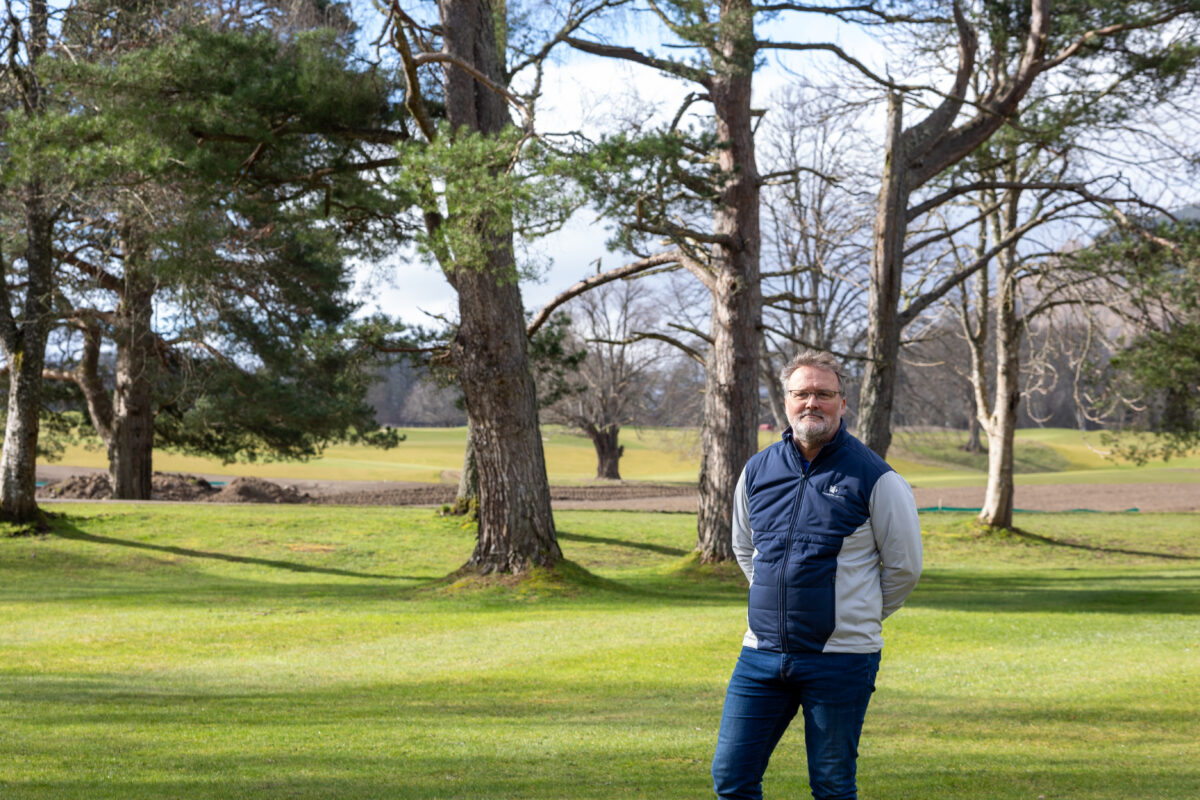
Golf course – a green approach
At Taymouth Castle, environmental stewardship is a way of life. In this blog, we explore how our Director of Agronomy, Steve Chappell and his dedicated team are working tirelessly to bring the golf course to life while benefitting the surrounding ecosystem.
Our vision for green excellence
Our sights are set on achieving GEO Certification – an accreditation for making a positive ecological and environmental impact – by the time the course opens in Summer 2025.
We are doing everything we can to prove that the pursuit of a perfect swing can coexist harmoniously with nature! We are on track with four holes already sodded with custom-grown turf from Lincolnshire.
Putting nature first
At Taymouth Castle, the agronomic focus is on limiting environmental impact, exceeding regulatory standards and following sustainable practices. Collaborating with planning officials and regulatory bodies, our initiatives extend far beyond the course itself. From large-scale drainage plans to silt mitigation and borehole contamination prevention, every step is taken with nature in mind.
Tree preservation and biodiversity
Our commitment to preserving nature’s beauty extends to every corner of Taymouth Castle. Through arborist surveys and meticulous care, we are protecting historic trees while introducing 180 indigenous varieties, including large-leaf lime, oak, Scots pine, Douglas fir, sycamore, and beautiful copper beech. Our work also entails reducing invasive species and removing decayed material and weather-damaged trees by hand to minimise impact.
Working closely with a respected horticulturalist, we are planning to reintroduce bluebells, lupins, snowdrops and borage to create a harmonious ecosystem for bees and other pollinators – one flower at a time!
For the courses, mostly native grass varieties, such as fescue, are being employed for their high drought tolerances and lower water input.
Water management and technology
Water, a precious resource, is managed with utmost care. Our team monitors weather stations daily, always ensuring responsible irrigation practices.
Throughout the course, we are incorporating innovative sand-capping practices to facilitate effective drainage. While still quite rare in the UK, Taymouth will have sand caps in the region of 200mm acting as a natural filter system to prevent any contaminants from entering the River Tay.
Future plans include implementing renewable energy and battery-powered equipment as part of our commitment to sustainability throughout the estate.